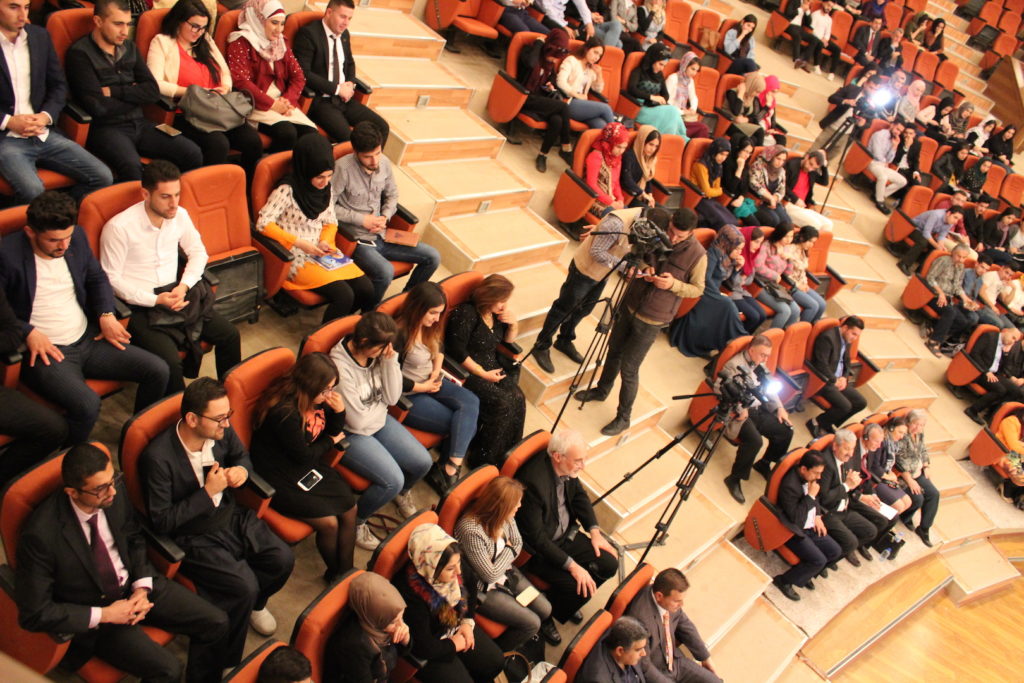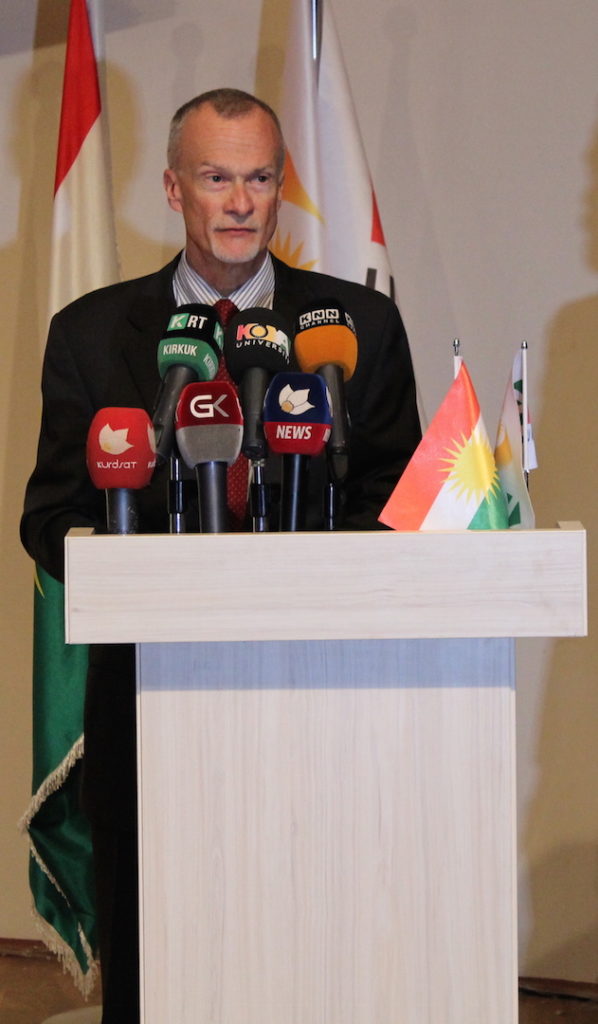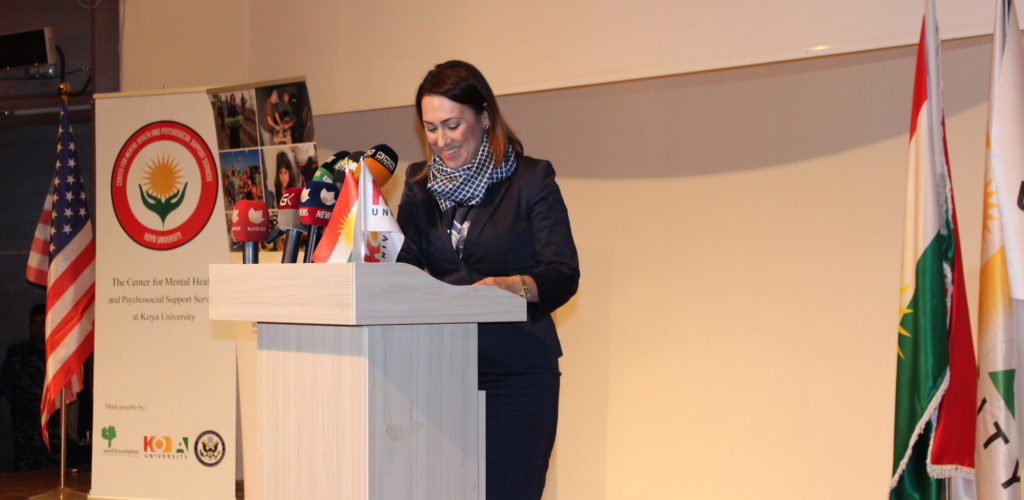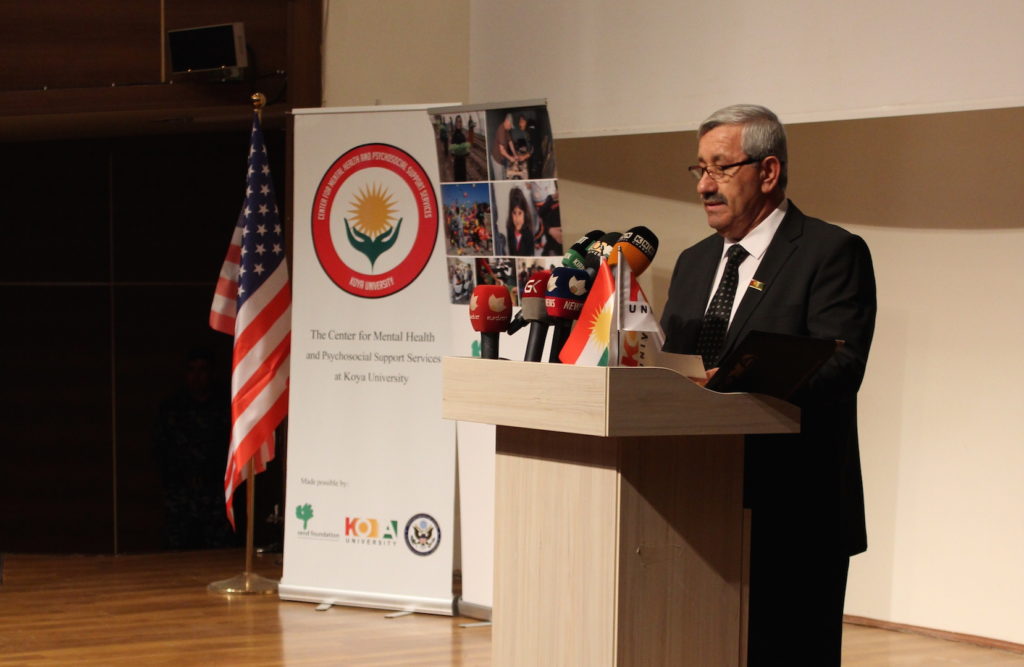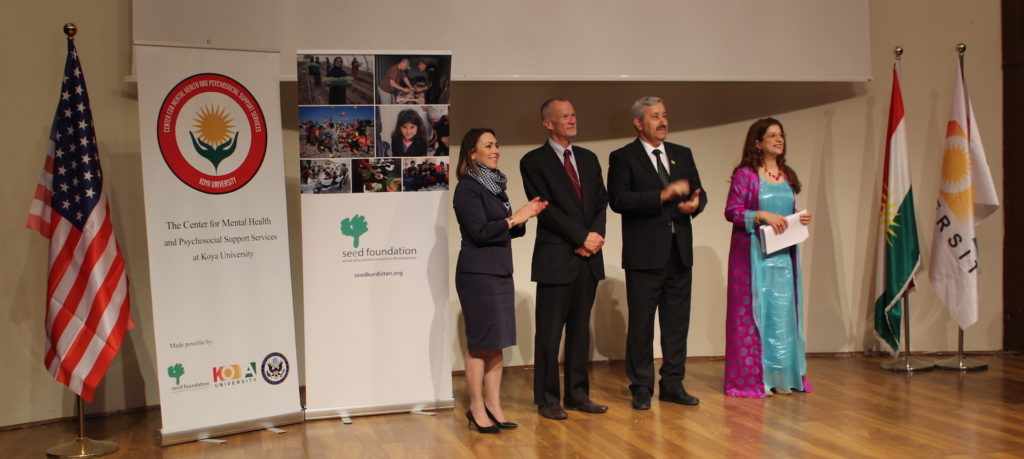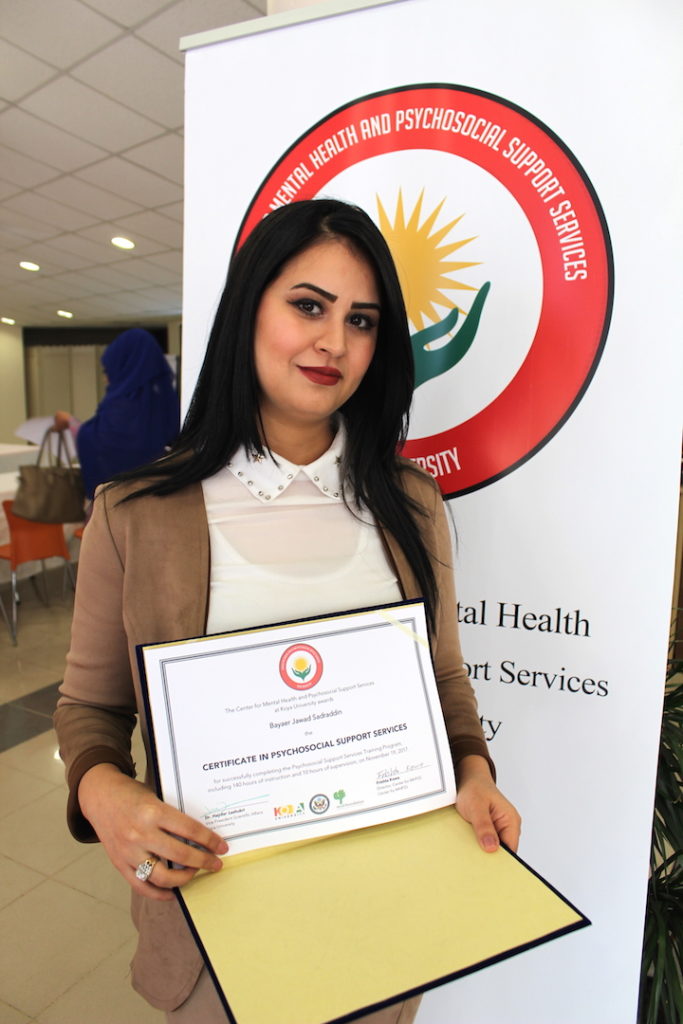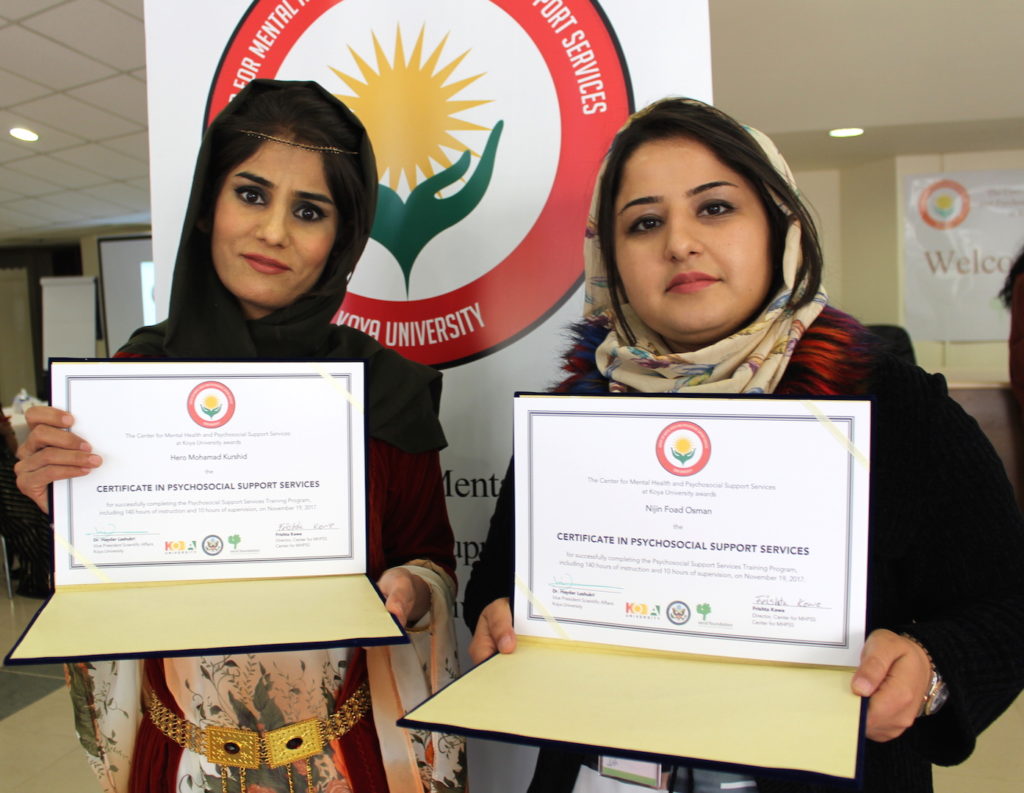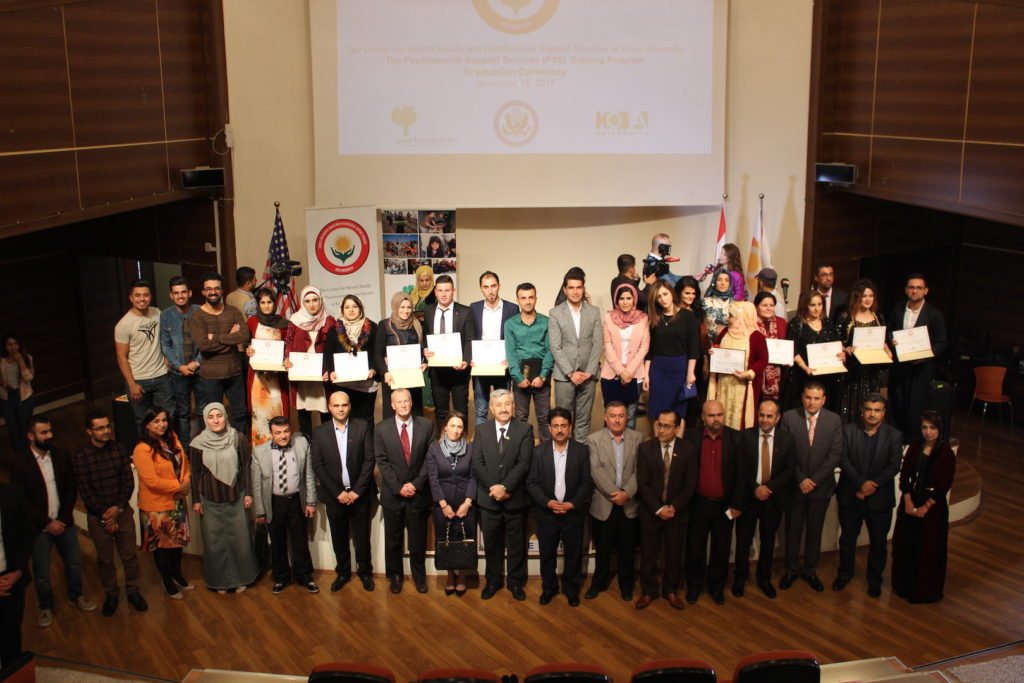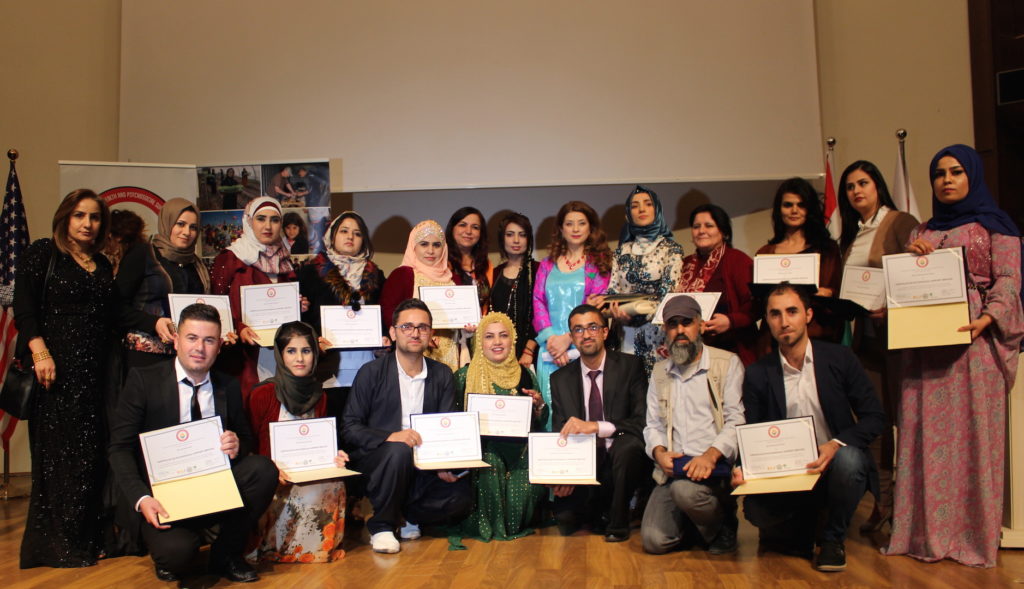The Center for Mental Health and Psychosocial Support Services (MHPSS) at Koya University graduated its first 24 students from the Psychosocial Support Services (PSS) Training Program on November 19, 2017, at Koya University.
The Graduation Day included a morning of learning where we brought students and supervisors together in focus groups to learn more about their experiences and receive their feedback for continuing to strengthen the PSS Training and to learn in which ways the PSS Training Program has improved their skills at work and with clients. The students described how their skills, practices, and beliefs were transformed by the six month training course, especially by the clinical supervision they received throughout the program, where supervisors from the Center for MHPSS, provided hands-on guidance and advice as they worked with clients. The day ended with a festive graduation ceremony with remarks from US Consul General, Ken Gross, President of Koya University, Dr. Wali Hamad, and SEED President, Sherri Kraham Talabany.
The Center for MHPSS exists to empower service providers — the women and men seeking to help others facing incredible challenges due to conflict, war, disaster, and abuse. The PSS Training Program improves the skills of helping professionals working with survivors of gender-based violence (GBV), people who are displaced, and other vulnerable populations, so that they can better support their needs. This program trains psychologists, social workers, and other service providers in a six-month training program, integrating four weeks of in-class instruction with ongoing supervision at their workplace.
“You chose this work because you wanted to help others, change their lives, and maybe even to change our society. You’re working every day to support the most vulnerable and those who have suffered so much, to heal and to recover, and to protect those in trouble and help them get on a better path”, said Sherri Kraham Talabany during her remarks. She praised the students for their commitment to learning, to improving their skills to work with those in need, and to their professionalism as they participated in the program. Dr. Wali Hamad said how hopeful he is about the future of the Center for MHPSS: “Establishing and sustaining such a center is very difficult in such circumstances as we are witnessing. But thanks to our cooperation with SEED, we can think of a promising future for this center.”
The Center’s Frishta Kewe, who instructed the students for six months said, “This group has seen some of the toughest cases you can imagine. Consider the case of a young mother of five experiencing domestic violence and having suicidal thoughts or imagine the challenges of a young Yezidi woman who has escaped ISIS with her young children. These are the kinds of cases these brave service providers are seeking to help. And help they have. They’ve helped many, as I’ve learned from my time supervising many of them.”
During the graduation ceremony two students also gave remarks about their experience, too. Shaima Muhamad said: “As a psychologist, I’ve had many trainings, and the topics were the same as those in the PSS Training Program, however it has never been so detailed in content, practice-oriented and neither so academic.” Another participant was Laila Mubarak, who is an internally displaced (IDP), after being forced to flee Mosul when ISIS invaded. To help others who were displaced, she started working at an NGO in Erbil. She shared how grateful she was to be enrolled in the PSS Training Program, so that she could help others through her work, but also because she experienced the challenges and pain of displacement.
She said she learned ways to cope and better care for herself and her family, “I learned how to care for myself, enjoy some kind of rest when I feel tired, this was not included in the routine of my life. I learned to say ‘no’ in certain matters and cases. I learned not to give false promises, and false hope, and to be truthful and frank with those whom I deal with. At the end, I love my work a lot and I love to create a smile on the face of every human that is suffering.”
The Center for MHPSS at Koya University was launched in January 2017 and serves as a hub for shared learning and ongoing education to improve the quality of MHPSS services throughout the Kurdistan Region of Iraq. It is supported by the United States government. Read more about Education and Training and Supervision at the Center for MHPSS.

